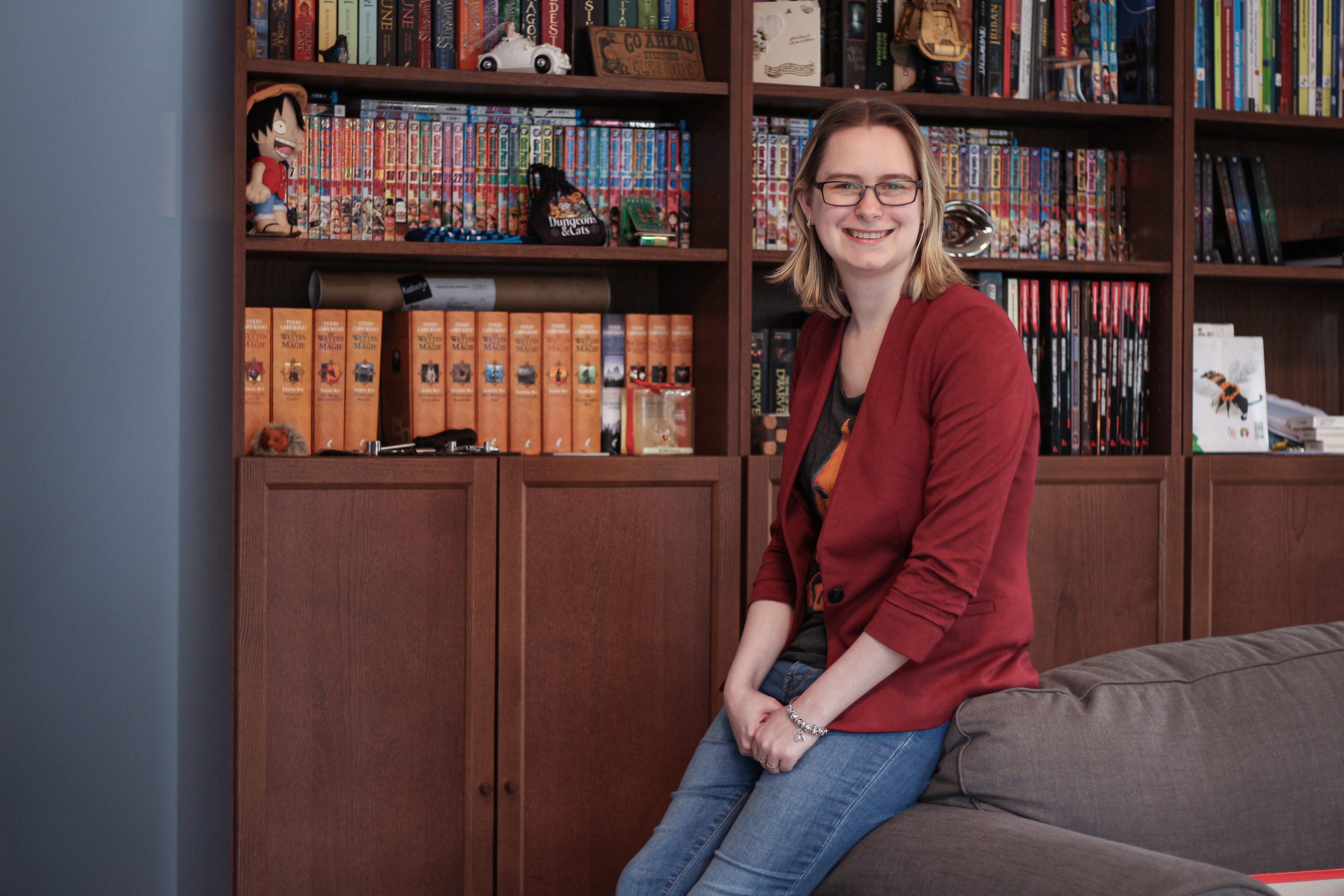To campus, sports, parties. After 2 years of Covid, we can do almost everything again. Time to look back with some TU students. Such as Marissa, who has a physical impairment.
Marissa van der Tol: “People with disabilities are often a forgotten group.” (Photo: Justyna Botor)
Marissa van ter Tol (27) has fibromyalgia, a physical impairment that causes chronic muscle pain. Her energy levels are low and she is often only able to come to campus once or twice a week. She is studying Applied Mathematics and for her, in contrast to other students, digital learning is a relief.
Have you had this condition your whole life?
“I first started feeling pain when I was in secondary school, about 13 years ago. I then ended up in a wheelchair because it was too painful to walk. I wanted so badly to keep doing things that I ignored the pain for too long. I had to do my final school exams in a wheelchair. I now know that there are days that I have too much pain to walk. Fortunately, there are also days that I can do a lot. I still have a wheelchair, but I only use it on the really bad days.”
How did it go when you started studying?
“I felt really nervous when I was thinking about starting a new course in 2020. I didn’t know if I would manage to go to TU Delft physically for a whole week. Before this, I had stopped teacher training as it was too intensive for me. A new course was not only scary, it was mentally challenging too. I was anxious about it and wondered if I would manage and how I could keep going. When all the teaching went digital because of Covid, that anxiety went away.”
There is a lot missing for people like me to be able to fully participate in society’
How is it going now?
“My lessons are all still hybrid. It is wonderful that you can choose whether you go to campus. I have good days and bad days. I can’t anticipate them. So for me, having the choice is so important. I do see the advantages of physical learning. It is important for me too to see my fellow students regularly. I also want to put time and energy into them.
People with disabilities are often a forgotten group. I would really like it if this group got more attention. There is a lot missing for people like me to be able to fully participate in society. I’m not only talking about studying, but also about things like finding a job or taking part in a sport that you enjoy. Simple things that should just be doable but that cannot be taken for granted by people with a disability.”
What did you discover about yourself during the pandemic?
“I didn’t know that I could function so well. Digital education meant that I suddenly had energy left over and that was new for me. I had gone through a sort of grieving process all those years. Before the pandemic, I thought that there were too many limitations to meet the expectations of society. During the pandemic, those limitations dropped away and I could suddenly be part of society. So I wrote an open letter (in Dutch) with Student Onbeperkt (a student platform at TU Delft for students with a physical impairment). We would like to see that hybrid education remains an option and we are discussing this with TU Delft. It is really great that Student Onbeperkt is willing to put time and energy into this. It’s worthy of a big thank you.”
- You can find the other parts of this series here.
Doris Aafjes / Student-redacteur



Comments are closed.